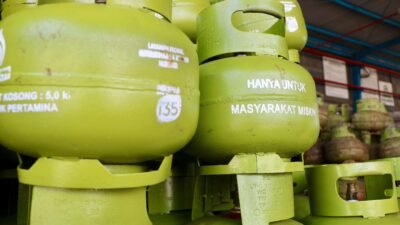In the ever-shifting world of global trade, consistency is key. However, for multinational manufacturers like Pegatron, the United States’ unpredictable import tariffs have become a growing concern. Recently, Pegatron — a major Apple supplier — publicly voiced its worries over the inconsistency in U.S. trade policy, warning of significant risks to business operations and supply chain planning. But what exactly is happening, and why does it matter?
Background: What’s Going On with U.S. Import Tariffs?
The United States has adjusted its import tariffs multiple times over the last few years, particularly in sectors like electronics, semiconductors, and automotive parts. These changes are often driven by shifting political agendas, trade negotiations, and domestic economic goals.
While some tariffs are intended to protect local industries, they can also create uncertainty for foreign manufacturers operating in or exporting to the U.S. Pegatron, which assembles key components for electronics and consumer devices, finds itself directly affected by these unpredictable policy swings.
Pegatron Speaks Out: Unstable Policies Create Real Business Risks
In a recent statement, Pegatron emphasized that inconsistent tariff structures increase financial risk, complicate pricing strategies, and hinder long-term planning. The company highlighted that sudden shifts in import duties make it difficult to forecast costs accurately — especially when dealing with U.S.-bound shipments from Asia.
Moreover, Pegatron noted that supply chain disruptions are now more likely, as tariffs can suddenly raise input costs or delay shipments. The company warned that these conditions make the U.S. a less reliable destination for high-volume exports, prompting a reevaluation of regional manufacturing strategies.
The Broader Impact: Not Just Pegatron
Although Pegatron is the latest firm to raise concerns, it is far from alone. Other electronics giants, including Foxconn and TSMC, have echoed similar sentiments over the years. These policy inconsistencies do not just affect companies; they ripple through entire supply chains, potentially increasing costs for U.S. consumers and businesses alike.
In response, some companies are diversifying production, shifting part of their operations to countries with more stable trade agreements. This trend, if it continues, could reduce the U.S.’s role in global tech manufacturing — an outcome that contradicts the goal of strengthening domestic supply chains.
What Needs to Change?
Pegatron’s warning serves as a call for more predictable and transparent U.S. trade policies. Investors, partners, and foreign manufacturers all benefit when they can plan with confidence. Policymakers may need to consider long-term effects over short-term political wins to maintain the country’s attractiveness to global businesses.
Consistency in tariff policy could help rebuild trust with international manufacturers, stabilize markets, and ultimately strengthen the economy.
Conclusion: Stability Over Strategy?
Tariffs are powerful tools — but used inconsistently, they can damage the very industries they’re meant to protect. Pegatron’s statement underscores a crucial truth: in global trade, unpredictability breeds risk. For the U.S. to remain a leader in innovation and manufacturing, a clearer, more consistent approach to import regulation is urgently needed.













